This article was co-authored by Mohammad Dar, MD. Dr. Mohammad Dar (MoDar) is a board certified Internist based in Boston, Massachusetts. With over seven years of experience in the medical field, he is skilled in epidemiology, healthcare, and health policy. Dr. Dar has had a myriad of experiences in healthcare, including working on the implementation of the Affordable Care Act at the White House Office of Health Reform, volunteering in rural Uganda with public health initiatives, and leading policy and on-the-ground COVID-19 operations during the pandemic. He has also worked on a number of innovative public health and insurance reform initiatives in Massachusetts. Dr. Dar received a BS in Cell and Molecular Biology and History from The University of Michigan and an MD from The University of Michigan Medical School. He completed his residency training at Harvard Medical School and Brigham and Women’s Hospital, from which he received the Golden Stethoscope Award.
There are 13 references cited in this article, which can be found at the bottom of the page.
wikiHow marks an article as reader-approved once it receives enough positive feedback. This article has 14 testimonials from our readers, earning it our reader-approved status.
This article has been viewed 213,025 times.
Gout is one of the most painful forms of arthritis.[1] It occurs when too much uric acid builds up in the body,[2] and is more prevalent among men than women.[3] Since gout is commonly the result of poor dietary habits, changing what you eat is one of the best ways to treat it. Medications and other lifestyle changes can also really help. See Step 1 to learn more about ways to lower uric acid to manage or get rid of gout.
Steps
Managing Your Diet
-
1Understand how gout affects the body. A gout attack occurs when uric acid levels get too high, leading to the formation of uric acid crystals in the joints and other areas. Increased levels of uric acid can lead to a number of painful issues throughout the body.[4]
- Since these crystals are heavier than the blood carrying them, they begin to create deposits throughout the body. However, due to gravity, these heavy crystals are usually pulled to the lower part of the body, including the large space between the joints in the big toe.
- Kidney stones happen when uric acid crystals form in the kidneys.[5]
- Crystal formations called tophi can form under the skin.[6]
-
2Completely avoid certain high-purine animal products. Certain meats, fish, and other animal products contain high amounts of purine, which converts to uric acid. When too much uric acid builds up in the joints, it leads to gout. Completely avoiding the following high-purine foods will help ease the impact of your gout:[7]
- Organ meats
- Herring
- Anchovies
- Mackerel
Advertisement -
3Limit your consumption of all meat and fish. All meat, fish, and poultry have some amount of uric acid. While you don't have to become a strict vegetarian, cutting back on meat and fish is an essential step to treating the disease. [8] Limit your consumption of the following foods to 4 to 6 ounces (1 serving) daily:[9]
- Poultry
- Red meat (pork, beef, and lamb)
- Tuna
- Lobster
- Shrimp
-
4Avoid vegetables, fruits, and legumes that are high in uric acid. Some non-meat products are also naturally high in purines. These foods tend to contribute to the formation of uric acid in the blood. The following vegetables, fruits, and legumes have high uric acid:[10]
- Mushrooms
- Beans
- Peas
- Lentils
- Bananas
- Avocado
- Kiwi fruit
- Pineapple
-
5Eat less fat. Eating a lot of saturated fat has been shown to inhibit the body's ability to process uric acid. Avoid fried foods and foods with high-fat content, like full-fat dairy. Low-fat foods like fruits and vegetables, legumes, and whole grains will help you manage gout.
-
6Avoid high-fructose corn syrup. Fructose increases uric acid, so avoid beverages sweetened with high-fructose corn syrup as well as desserts and other items that contain this substance.[11] It's important to read food packages carefully, because HFCS is present in a lot of different foods, even those that don't necessarily taste sweet, like bread or snack foods.
Making Lifestyle Changes
-
1Keep your weight down. People who are overweight or obese are at greater risk for developing gout. Losing weight can help keep gout in check and move you closer toward getting rid of it for good. Talk with your doctor about constructing a healthy weight-loss plan that involves limiting foods high in purine. It should be constructed around the following foods, in addition to plenty of exercise:
- Lean protein options (excluding organ meat and fatty fish)
- Whole grains
- Low-purine fruits and vegetables
- Nuts and other healthy snacks
-
2Keep your stress in check. A high stress level can lead to gout flare-ups, so it's important to take measures to keep your stress under control. Exercising and eating well can be a big help. In addition to keeping your body healthy, work on achieving sound mental health by doing the following:
- Take time for yourself as often as necessary. If you're feeling pulled in a million directions, that'll take a toll on your body.
- Meditate, do yoga, or spend some time outside. Start regularly performing an activity that brings you inner peace.
- Get plenty of sleep every night. Aim for 7-8 hours, and try to stick to a schedule.
-
3Cut back on alcohol, especially beer. Beer is known to increase uric acid, and it should be completely avoided to combat gout. Wine, however, shouldn't increase uric acid if it's consumed in small quantities. Drinking just one or two 5-ounce servings a day does not increase your risk.
-
4Drink lots of water. It helps to flush uric acid from the system, relieving your joints of buildup. Drink more than you normally would - at least 8 to 16 8-ounce glasses every day.[12]
-
5Assess your vitamin and pain medication intake. People who take a lot of vitamins containing niacin as well as some over-the-counter medicines are at an increased risk of developing gout. If you tend to take a lot of vitamins and medicines, meet with your doctor to discuss how they might be affecting your gout.[13] The following supplements and medicines may put you at risk of having flare-ups:
- Niacin
- Aspirin
- Diuretics
- Cyclosporine
- Levodopa
Trying Medication and Other Treatments
-
1Ease the pain of flare-ups with pain relievers. Gout is one of the most painful types of arthritis, and when flareups happen, medication can be a big help. It's important to talk with your doctor about a medication plan that will be healthy for your body. Your doctor may present the following options, depending on your pain level:
- Nonsteroidal anti-inflammatory drugs (NSAIDs). These are available over-the-counter.
- Corticosteroids, such as prednisone.
- Colchicine. This medicine works best when taken within the first 12 hours of an acute attack.
-
2Get treated for underlying causes. Gout isn't always a result of eating too much meat and other purine-heavy foods. Sometimes it's a result of the body's inability to get rid of uric acid for other reasons. If you've been affected by one of the following issues, you'll need to get proper treatment to keep your gout in check:[14]
- Some people with gout have an enzyme defect that makes it very difficult for the body to break down purines.
- Some people have gout as a result of being exposed to lead in the environment.
- People who have had an organ transplant are particularly susceptible.
-
3Look into new therapies for gout. Since gout is on the rise, new therapies and medications are always being tested.[15] If gout is affecting your quality of life and conventional ways of treating it aren't working, talk with your doctor about exploring all of your options.
References
- ↑ https://www.cdc.gov/arthritis/basics/gout.html
- ↑ https://medlineplus.gov/lab-tests/uric-acid-test/
- ↑ https://advancesinrheumatology.biomedcentral.com/articles/10.1186/s42358-019-0067-7
- ↑ https://www.msdmanuals.com/home/bone,-joint,-and-muscle-disorders/gout-and-calcium-pyrophosphate-arthritis/gout
- ↑ https://my.clevelandclinic.org/health/symptoms/17808-high-uric-acid-level
- ↑ https://www.kidney.org/atoz/content/gout/gout-kidney-disease
- ↑ https://my.clevelandclinic.org/health/diseases/16378-uric-acid-stones
- ↑ https://www.ncbi.nlm.nih.gov/pmc/articles/PMC3572016/
- ↑ https://www.niagarahealth.on.ca/files/PurineRestrictedDiet2009.pdf
- ↑ https://www.fairview.org/Patient-Education/Articles/English/e/a/t/i/n/Eating_to_Prevent_Gout_87513
- ↑ https://my.clevelandclinic.org/health/treatments/22548-gout-low-purine-diet
- ↑ https://www.arthritis.org/health-wellness/healthy-living/nutrition/healthy-eating/gout-diet-dos-and-donts
- ↑ http://www.niams.nih.gov/Health_Info/Gout/gout_ff.asp
- ↑ http://www.niams.nih.gov/Health_Info/Gout/gout_ff.asp
- ↑ http://www.niams.nih.gov/Health_Info/Gout/gout_ff.asp
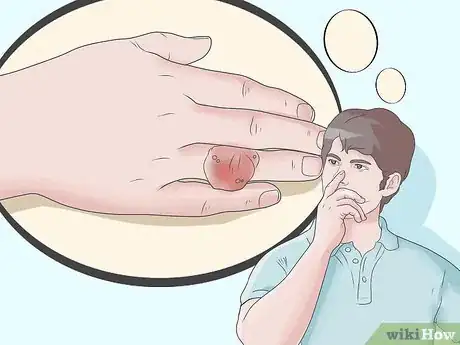
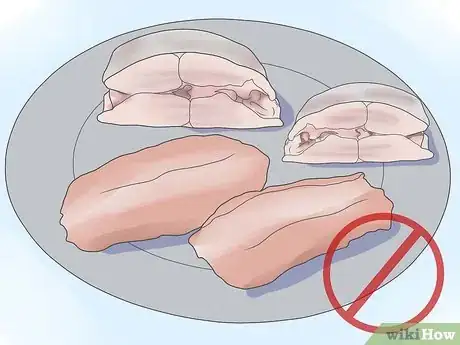
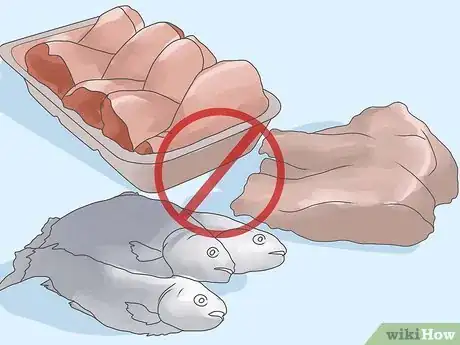
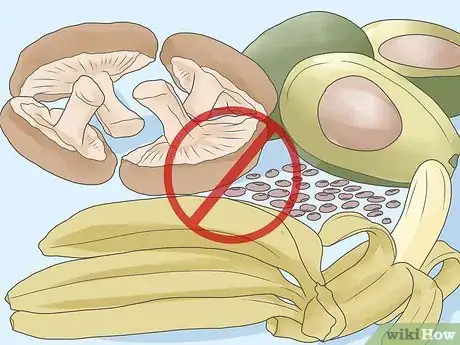
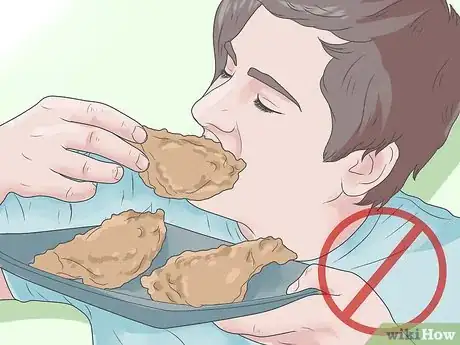


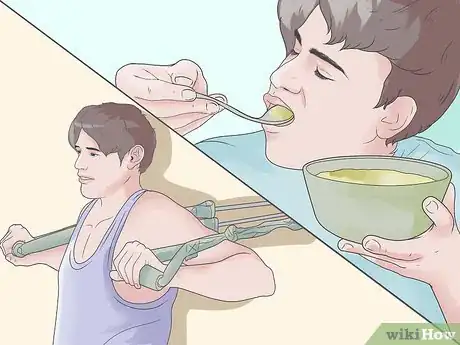

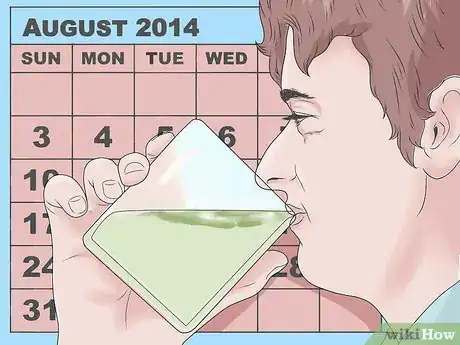
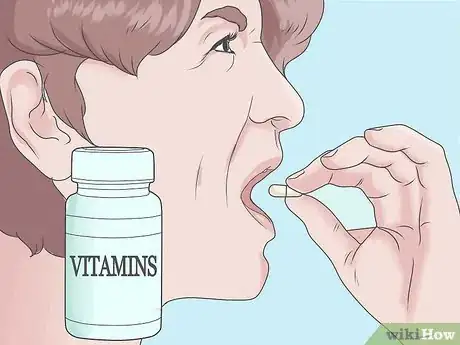
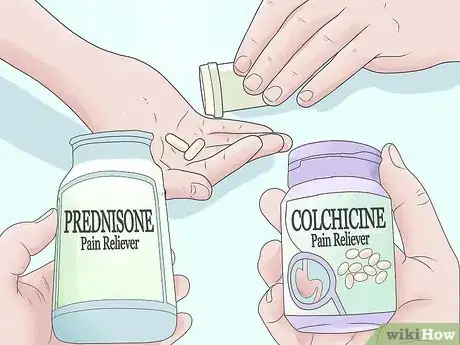
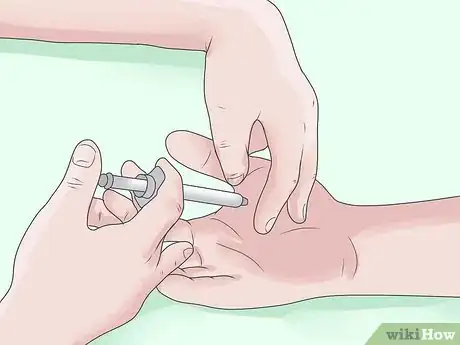


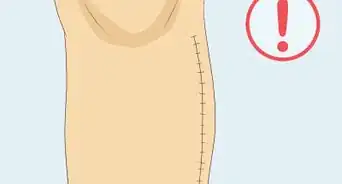


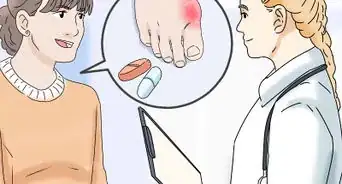

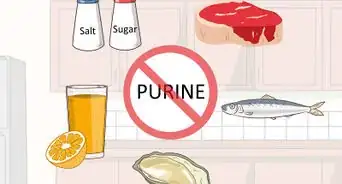


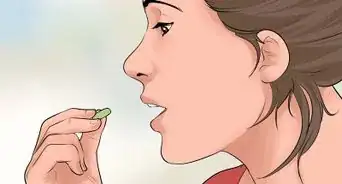



















































Medical Disclaimer
The content of this article is not intended to be a substitute for professional medical advice, examination, diagnosis, or treatment. You should always contact your doctor or other qualified healthcare professional before starting, changing, or stopping any kind of health treatment.
Read More...